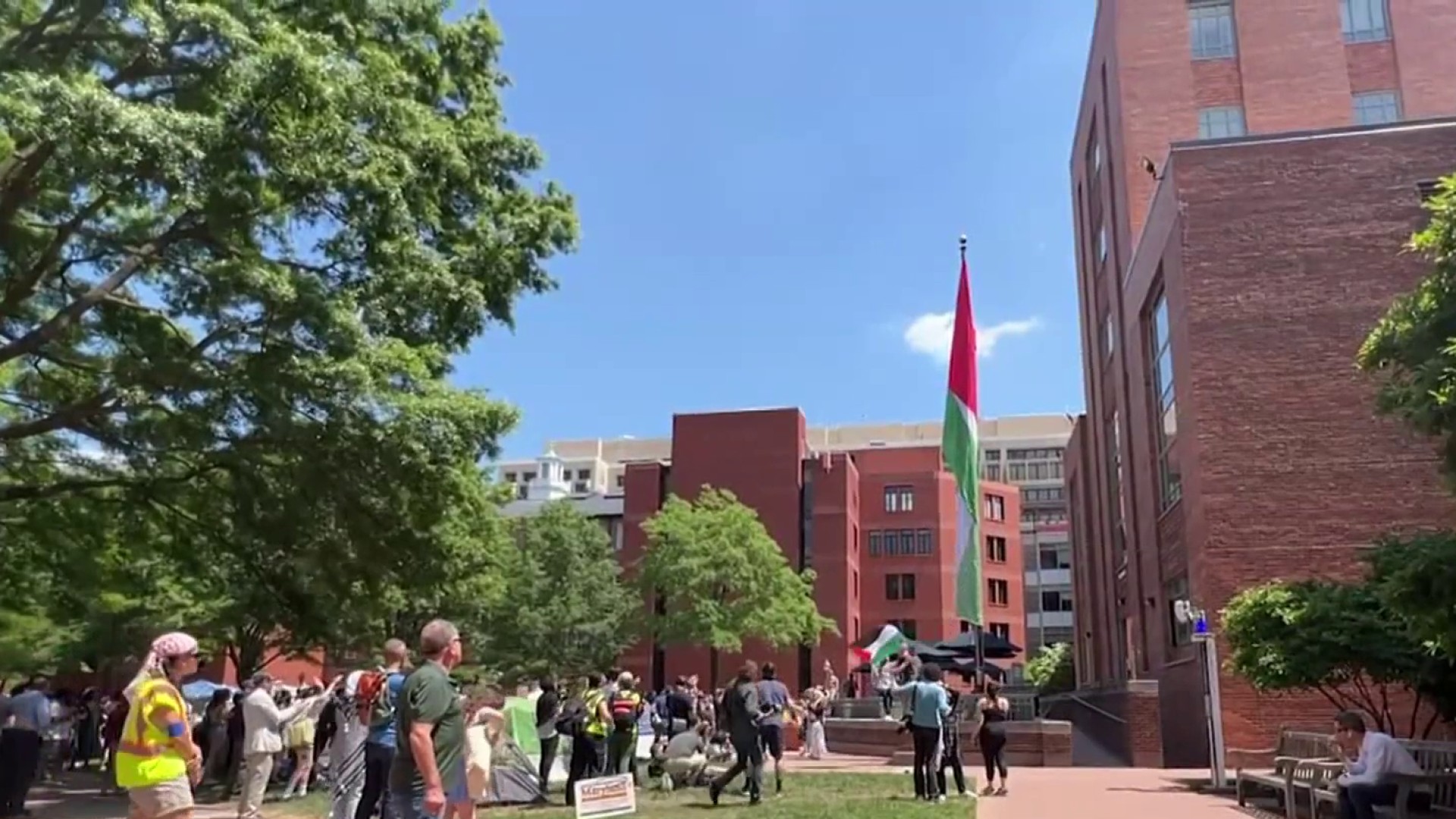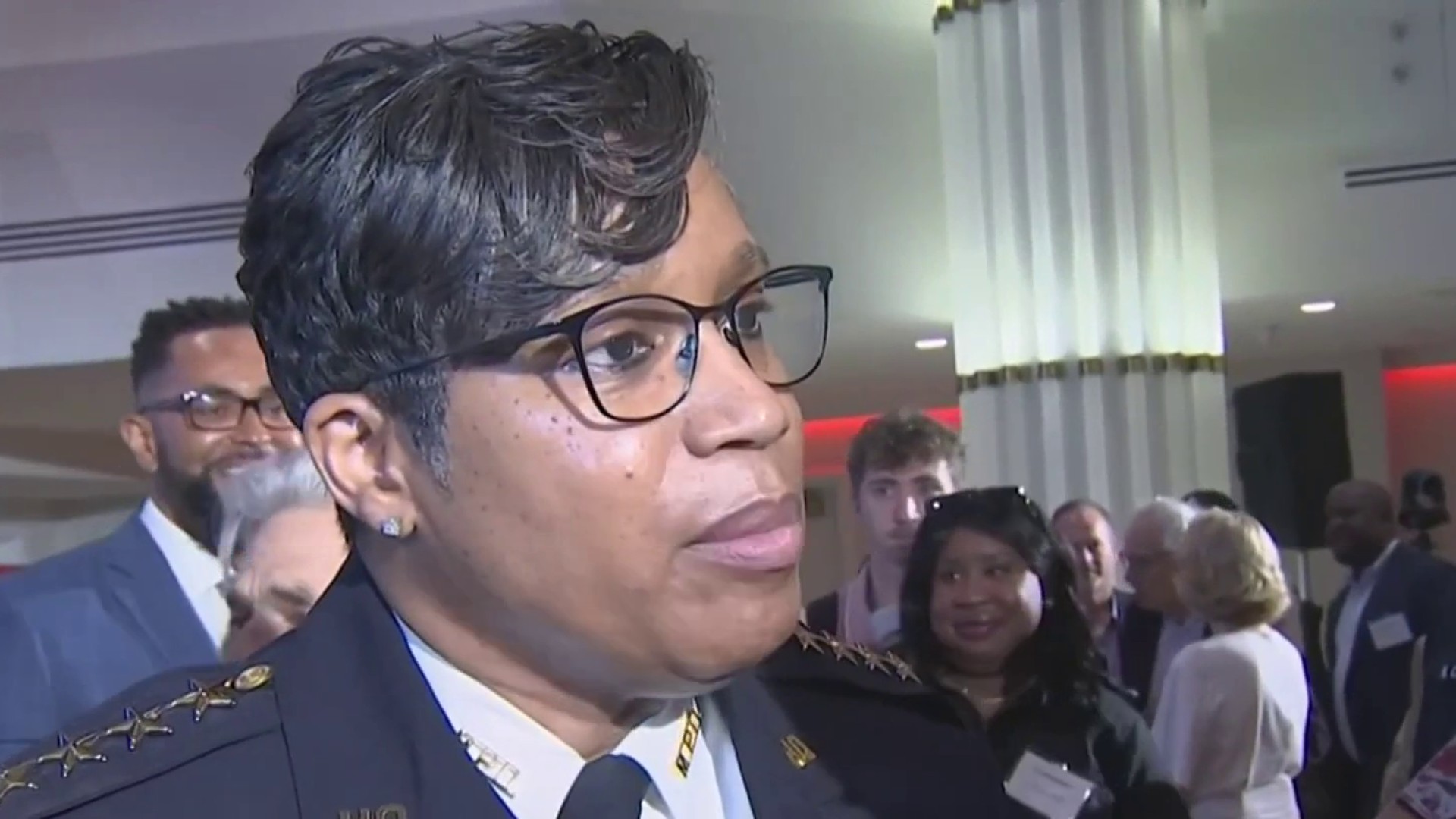The president of George Washington University is calling for an end to the pro-Palestinian encampment on the school's campus, calling it “unlawful."
The protests on campus reached their 12th day on Monday, as students called on the university to divest financial support from Israel.
In a letter on Sunday to the university community, President Ellen Granberg did not mince words. She said GW wants to resolve the situation but that it's not equipped to do so single-handedly.
Granberg called on support from the District and the Metropolitan Police Department.
We're making it easier for you to find stories that matter with our new newsletter — The 4Front. Sign up here and get news that is important for you to your inbox.
"I fully support and encourage our community to speak out and engage in controversial and critical dialogues on these crucial issues—as long as they occur within the limits of our university's policies and the District's laws. However, what is currently happening at GW is not a peaceful protest protected by the First Amendment or our university’s policies. The demonstration, like many around the country, has grown into what can only be classified as an illegal and potentially dangerous occupation,” the letter reads in part. Read the letter in its entirety here.
Protesters at the encampment on Sunday and Monday said they did not agree with the president's characterization and that they’re not going anywhere unless their demands are met.
“Since day one, we’ve been saying these are our demands, this is what we want, let’s negotiate, and she just has not been willing to come to the table. She has not even been willing to set foot on this encampment or even on the public property right on the street here,” student organizer Selina Al-Shihabi said.
Granberg raised concerns over the involvement of people who are not affiliated with the school, saying the protest was “co-opted by individuals who are largely unaffiliated with our community and do not have our community's best interest in mind.”
Organizers said those demonstrators were there to drop off supplies.
Sunday also marked Holocaust Remembrance Day, and a group of Jewish students held a silent protest on campus. Many of those students raised concerns, saying they have not felt welcome on campus.
“Of course right now there’s a lot of focus on the campus protests, but the hope is we can try to bring the focus just more onto the students. We’re here. Hopefully we can get this semester over with and we’re here to stay,” student Sean Shekhman said.
D.C. police said they will stick with their policy to not clear the pro-Palestinian encampment at George Washington University as long as it remains peaceful.
News4 examined the policies that guide the department on if and when they intervene in any protest. The policies include a pre-mass arrest checklist. Factors include:
- If there have been any injuries or property damage
- Whether arrest could cause more injuries or property damage
- Whether there are sufficient police and jail resources to handle arrests
- Whether there is a viable alternative to mass arrests
Sign up for our Breaking newsletter to get the most urgent news stories in your inbox.
On Saturday, 25 people were arrested for trespassing at the University of Virginia after police clashed with pro-Palestinian protesters who refused to remove tents from campus. It was the latest clash in several tense and sometimes violent weeks at colleges and universities around the country that have seen dozens of protests and hundreds of arrests at demonstrations over the ongoing Israel-Hamas war.



